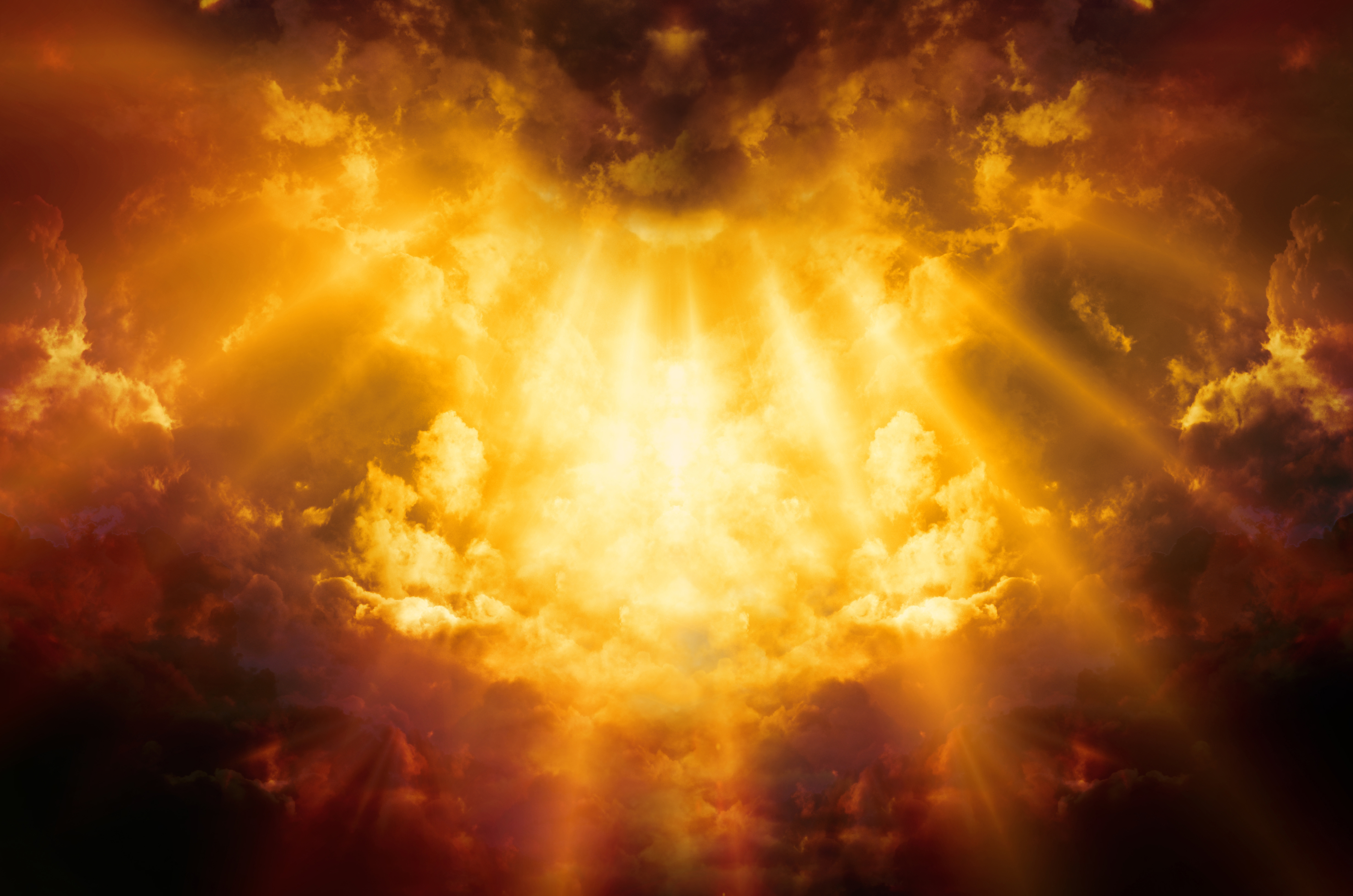Life! Eternal Life!

What is life? Life as a principle of existence is impossible to define, whether considered in relation to the natural or the spiritual. Nevertheless, the fact of this presence is demonstrated by movement, distinguishing between the animate and the inanimate. It is an active principle, and as such has its origin in God for, "in Him we live and move and exist" (Acts 17:28)
Life, however, is of many different forms, as of angel, man, beast, bird, fish or plant; all of which differ as to form. Each form, too, has its own peculiar nature; that is, it has the essential qualities which constitute it what it is. Nature (Greek -phusis, from phuo - to beget, produce, generate) is that which is inherent in the life of the being, giving it impulse to act, whether mentally, morally or physically, in a manner consistent with the form in which the creature is found, these movements becoming descriptive features of that particular form of life.
Again, each form of life passes its existence in a sphere, element, or place, in which are found conditions, associations and relationships consistent with its form and nature, and which are necessary, as conducive to its well-being. So life is not merely a principle of existence, but that which involves all the above considerations; and if so in regard of life in general, even more so, surely, in regard of "eternal life" in particular.
ETERNAL LIFE is not merely eternal existence, either in a state of blessedness or woe - for the unsaved will exist for ever, so also will the unfallen angels, but neither the one nor the other will be in possession of what is said to be "eternal life". Nor is it immortality only, for although all believers have eternal life now, yet, as long as they are in a body of flesh and blood, they are subject to mortality; that is, death of the body. Immortality, however, will be the condition as to the body of glory taken to mean the same as "new birth". Both are intimately connected, for birth and life are co-existent, yet each term is used in Scripture as distinctive, to convey to the mind a distinct and different meaning.
Eternal life is twice mentioned in the Old Testament, in Psalm 133 and Daniel 12. In both these passages it seems to refer to life during the Millennium, and as such will be the portion of the godly man, upon the earth, and in conditions which will obtain during that period. But "eternal life" as spoken of in the New Testament, that is, in the writings of John and Paul, is significant of life known in a specific way. This is clearly indicated in John 17:3, where it is stated to be characterized by the knowledge of the only true God as Father, and of Jesus Christ the One whom He has sent. It follows, then, that life as possessed and known by the believer in this present day of grace is the result of the sending of the Son, and the revelation by Him of God as Father; realized in the light of all that is involved in what that verse states. It s definitely life of a distinctive character.
ITS SOURCE AND MANIFESTATION: "That which was from the beginning, that which we have heard, which we have seen with our eyes, …(and the life has been manifested, and we have seen, and bear witness, and report to you the eternal life, which was with the Father, and has been manifested to us) that which we have seen and heard we report to you, that ye also may have fellowship with us; and our fellowship is indeed with the Father, and with His Son Jesus Christ" (I John 1:1-3).
The first epistle of John opens in a way which no other epistle does, and the first two words are, we suggest, the key-words of the epistle. "That which" is an abstract term, and refers to the "eternal life". It was "that which" was with the Father. Yes, ever and abidingly so! A statement which conveys to the mind not only the fact of its existence then and there, but also expresses its character. Here truly was a life incomparably unique; so morally glorious that it could only be manifested in all its essential qualities and graces by the Son Himself become incarnate - "God manifest in flesh".
Heard and seen from the beginning. Yes, from the beginning of its manifestation and display before men in the Son in Manhood. And so, He is said to be the "word (logos) of life". He ever was that, but is now seen to be such in manhood before the eyes of men, He being the embodiment and expression of it. This life was never seen on earth before, nor could be until He came for "He is the true God and eternal life" (I John 5:20).
This life was in the mind of God for men before the ages of time (Titus 1:2), and that it might become the life of man, the Son became a man, "the Man Christ Jesus". How clearly this is put by another - "Being in Himself life, He came into the world as the life. The thing was embodied in the Person of the Lord as Man, and there it was - the life of man, not angels". Personally, substantially, and manifestly - it is CHRIST!
It was that which the apostles had not only "seen and heard", but that which their hands had handled. Here then was life which they could take account of by eye, ear, and intimate contact with, and that in all its moral excellencies and perfections as seen in Him. A life, too, which they, as born of God (and later indwelt of the Spirit), were morally capacitated to appreciate and respond to. Responding to it, they had fellowship together as to it, a fellowship designated as being "with the Father, and with His Son Jesus Christ" in a holy mutuality of enjoyment and appreciation. Into this delightful circle of fellowship we are now brought, for it is the privilege and portion of all those walking in the light of the full revelation of the Father in the Person of the Son. This position, "in the light", is that in which all believers are now set and walk. In it there is no disturbing element of darkness, for "the true light already shines", and the "blood of Jesus Christ His Son cleanses us from all sin". This last is the moral basis of the position.
ITS COMMUNICATION TO MEN:
First, it is said to be the GIFT (or the act of favor) of God (Romans 10:23). It must be so, being impossible of attainment under law or by any other means. Man, in Adam, being a moral bankrupt, it must come by gift or not at all. But, although it was the disposition of God to give eternal life to men, a holy god must have a righteous foundation for the bestowal, or "act of favor". He could not connect eternal life with the state of man "in the flesh". This would be inconsistent with righteousness, for man in that state was under sentence of death, as judgment against time for sins. The sentence must be carried out! Therefore, "As Moses lifted up the serpent in the wilderness, thus must the Son of Man be lifted up, that every one who believes on Him may not perish, but have life eternal" (John 3:14).
He, the Son of Man, lifted up upon the cross, made sin for us, bearing judgment and wrath of a holy God upon Him as the sin-bearer, was abandoned of God there; died , and was buried. So we read, "God, having sent His own Son, in likeness of flesh of sin . . has condemned sin in the flesh" (Romans 8:3). Representatively, then, there in Christ upon the cross "sin in the flesh" was judged, and the while life and history of man as in that state judicially terminated. God is therefore now free to connect eternal life with man as in a new state before Him; that is, as "in Christ" the risen Man, the living Head of a new and heavenly race - "He breather into them" (John 20:22), as J.N.D. says, "a breath of inward life", and takes his place as the Head of a race - a living race of men, to be eternally associated with Himself as the glorified Man in heaven.
Being glorified, He the Son, having taken this new position as Man in heaven, and receiving "authority over all flesh", that as to all that the Father had given to Him He should give "life eternal" (John 17:2). This life, then, is the "gift of God" and is communicated to men by the Son.
ITS POSSESSION BY THE BELIEVER:
Now it is emphatically stated that "This life is in His Son" I John 5:11. It is in Him essentially. Nevertheless, it is true also that "He that has the Son has life" (verse 12). How is it that he has the Son except by faith?
He, the Son, is presented before the vision of the soul as the Object for faith to grasp. Laying hold of Him thus, the One in whom the life is, the believer is possessed of the "life" which is in the Son for man. Blessed fact! Faith connects him with the Source of life for men and he has "eternal life". He has it NOW. But this appropriation of Him is as the One who in "flesh and blood" the Son of Man, has given His flesh for the life of the world (John 6:52). How could He do this but by death? His body given, His blood shed; so that "He that eats My flesh and drinks My blood has life eternal" (v.54). It is the Appropriation of Himself in death; of the necessity and fact of His vicarious death and blood-shedding, as the moral basis for the communication of "life eternal". Risen again, however, and glorified, He becomes the "food" for the maintenance of the life communicated, for - "He also who eats Me shall live also on account of Me".
Thus the soul is nourished, the spiritual and moral constitution built up and developed by feeding upon Him! We live, according to the divine thought of life for us.
THE SPIRIT, THE POWER OF LIFE IN THE BELIEVER: There is, then, now no condemnation to those in Christ Jesus." "In Christ Jesus." This is the new position for us. No longer taken account of as "according to flesh", but "according to Spirit".
We have entered upon a new moral existence, and a new law, or principle of life now governs us - the "law of the Spirit of life in Christ Jesus". Thus vitalized, energized by this new power of life, we cease to mind the things of the flesh, and delight to mind the things of the Spirit, namely, those of life and peace. God’s Spirit dwells in us, the Spirit of life "on account of righteousness"; which characteristically is the "Spirit of Christ" (Romans 8:1-9).
The effects of this power operating within are then detailed in this wonderful chapter. We "put to death the deeds of the body’s" and live (v.13). As sons we are "led by the Spirit" (v.14). By the same Spirit we cry "Abba, Father" (v.15). Finally, our mortal bodies are to be "quickened" by the Spirit which now indwells.
Bearing all this in mind, then, let us sow "to the Spirit", that from the Spirit we may now "reap eternal life" (Galatians 6:8). Again, let us "Lay hold of eternal life" (I Timothy 6:12).
ITS NATURE AND CHARACTERISTICS:
God is the One who has given to us this life (1 John 5:11).
Hence, it is a divine and spiritual life. Divine, in the sense that it is from God as its Source and so having a nature which is consistent with that of the divine Giver; spiritual, in that it is outside the realm of the natural. It is not within the compass of the five senses. Having then this life, and the nature belonging to it, it follows that features produced by the active impulse of that nature will of necessity be such as are characteristic of, and in accord with, its divine Source." God is light." He is that essentially. But what is true of Him essentially should now be true of us characteristically, if this life is to be expressed. Therefore, let us "walk as children of light, for the fruit of the light is an all goodness and righteousness and truth" (Ephesians 5:8). Also, "God is love" so "every one that loves has been begotten of God" (I John 4:7). And, "Every one that loves Him that has begotten loves also him that is begotten of Him". Light and love, then, are to be seen in us as expressed features of "eternal life".
ITS SPHERE, RELATIONSHIPS AND ENVIRONMENT:
Eternal life, however, is to be known and realized in a sphere of holy and divinely formed relationships; and that, too, in conditions which are morally suitable to and consistent with the life possessed. These are to found, and there only, in the circle of affections into which have been brought according to divine purpose, as now set before the Father’s face holy and blameless in love; and "blessed with every spiritual blessing in the heavenlies in Christ" (Ephesians 1:3-6). In this position of unparalleled favor as sons, we "know the Father", and respond to His love.
Eternal life has gone back to heaven in the Person of the Son. Its eternal home is there where He is, and it is important for us to note that "There is nothing in common between the spheres of heavenly life and earthly life now, we await a spiritual and glorified body; then, fully capacitated, we shall enter upon the full realization of what "eternal life" is, which in all its fullness is now seen in the glorified Man in heaven.





